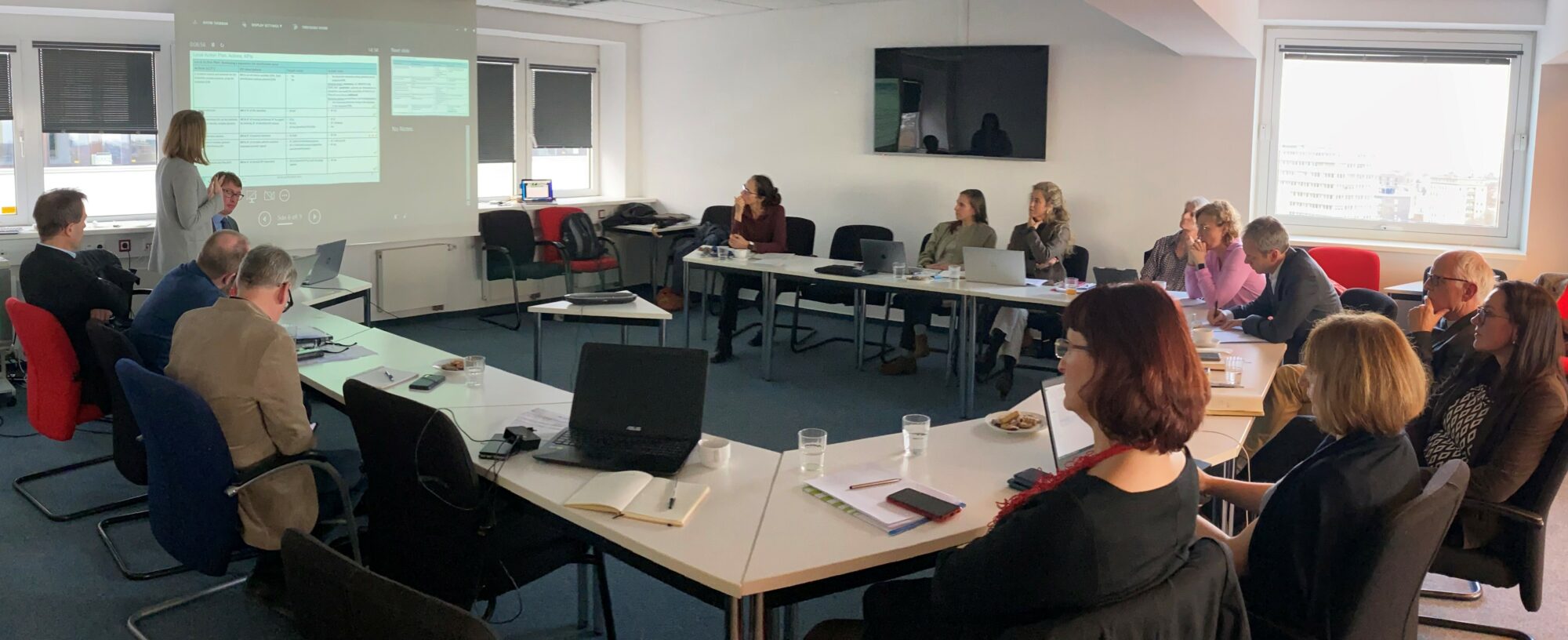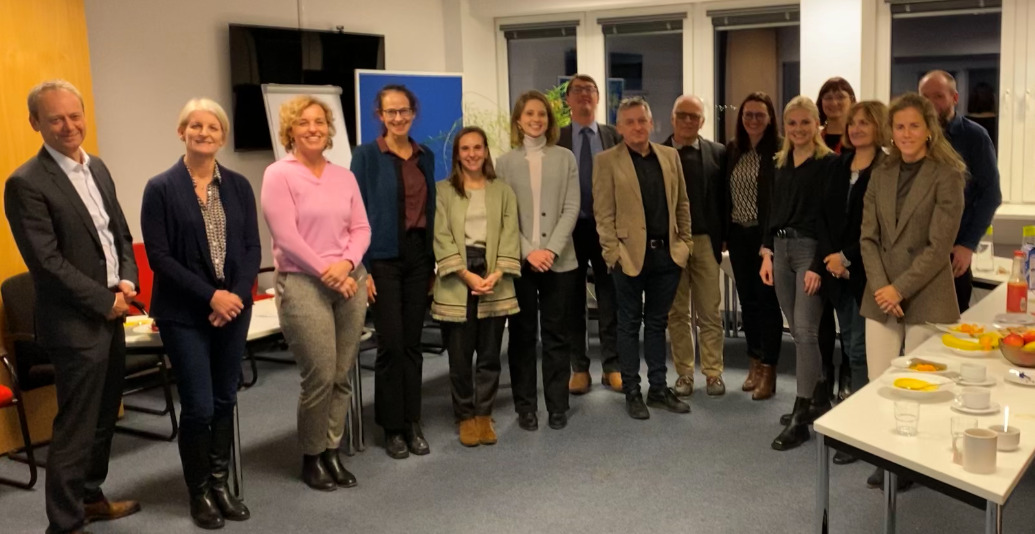The audience enjoyed an exquisite keynote on “Prerequisites for person-centred digital health applications to support integrated care” from Prof. Viktoria Stein, Assistant Professor for Population Health Management at Leiden University Medical Centre, Netherlands. She reminded the audience that digital health can be regarded as the grease (to smoothen transitions) and the glue (as a transformative force) for integrated care and that digital health literacy is an important social determinant of health. She demonstrated that in most person-centred projects, the codesign process with the patients themselves is still rarely applied.
An overview of the JADECARE status of implementations, achievements, as well as learnings, presented by Dr. Ane Fullaondo, Scientific coordinator of Kronikgune Institute for Health Services Research, Spain, included the learnings:
- a value-based and thorough definition of performance indicators is important, as is
- ongoing and constant communication and networking within the Next Adopter (NA) working groups and transfer work packages and
- continuous learning from successes and failures is key.
Five Next Adopters shared their hands-on experience, their local Good Practices and learnings in the implementation in their local contexts. In their presentations the NAs could showcase that digital tools and programs could support healthcare workforce and authorities in healthcare improvement.
In addition to these hands-on insights and learnings of JADECARE implementers, relevant and useful reflections and suggestions were exchanged between the audience and seven renowned high level healthcare experts:
Donna Henderson, Head of International Engagement and Digital Healthcare Innovation at Technology Enabled Care (TEC), Scotland, Marc Lange, General Secretary of EHTEL, Ulrik Appel, Project Manager of Steno Diabetes Center of North Denmark, Prof. Miklós Szócska, Dean of the Health Service Faculty at Semmelweis University, Hungary, Prof. Dipak Kalra, President of the European Institute for Innovation through Health Data (i-HD), United Kingdom, Lars Hulbaek, CEO of MedCom, Denmark and Angeles Barrios, Public Affairs and Stakeholder Relations Lead of European Institute of Innovation and Technology (EIT) Health, Spain.
Topics discussed with the experts included “Stakeholders needs and involvement to make digital solutions, supporting integrated patient-centred care, a reality in their systems” and “Ways to integrate health and social care services and how they can be supported by digital solutions”.
The experts pointed out that stakeholders need an alignment of policies and their priorities in order to efficiently use digital health solutions. They raised the European Policy’s commitment to the societal change towards digital health with the European Health Data Space (EHDS) Article 3 „Rights of natural persons in relation to the primary use of their personal electronic health data“ and the newly released “Declaration on Digital Rights for citizens“.
They also highlighted the challenges for Stakeholders in chronic disease prevention on different levels: local Stakeholders (e.g. municipalities), national Stakeholders (e.g. ministries of health) and European Stakeholders (e.g. the JADECARE consortium).
The experts pointed out that the challenge, also in JADECARE, is to move from pilots to sustainable options, keeping a look on a larger circle of Stakeholders and at budgetary vs. workload rectifications and not only on micro-scale. They described that e-Health portals in which citizens and health care professionals can look up the records from hospitals should contain also current relevant diagnoses from general practitioners (GPs), which are holistic and are thus useful also for social services for an efficient integration of health and social care. The challenge is to identify what data would be relevant for social services, for GPs and for hospitals.
The experts expressed that Health and social care integration is a must and that urgent challenges regarding health data are
- Gathering of hospital data, but also primary care data of GPs and even more so of social care data
- Interoperability of data to unlock the full potential of data by connecting care levels
- Data protection without blocking the possibility to use them for health and social care improvement
- Use and sharing of primary and secondary health data, enabling innovation purposes.
The experts acknowledged the achievements of JADECARE and recommended to lead the experiences and Good Practice transfer of JADECARE into a permanent JADECARE clearing house that supports the systems capability transformation of health systems.

